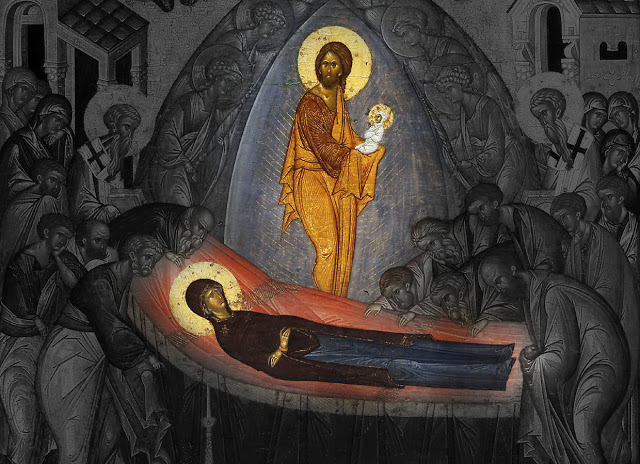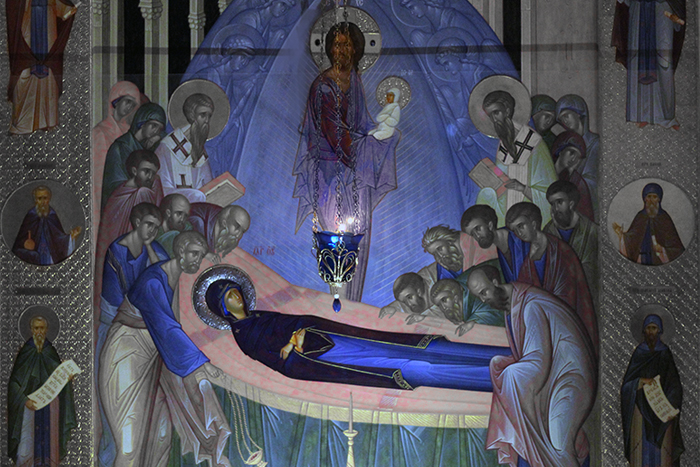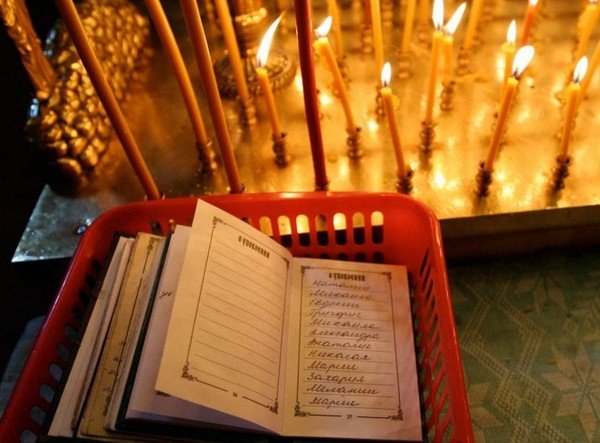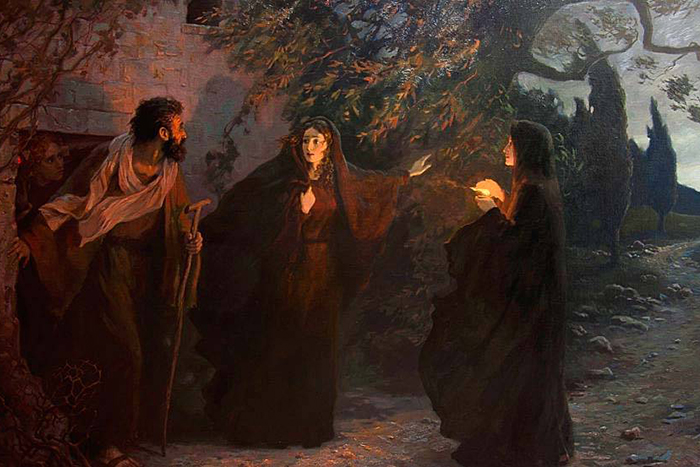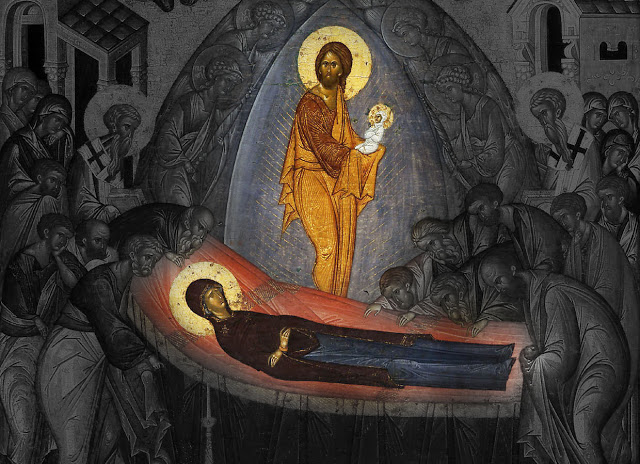 The Mother of God reached the end of her earthly life. For quite a long time (and even today), the life of the Mother of God remained in the shadow: the gaze of ancient Christians was focused only on Christ, although since the apostolic times, the Church honored the memory of holy martyrs, who testified about their faith in the Resurrected Messiah with their own blood. Only when some people began to talk ill about Virgin Mary, diminishing Her dignity and hence diminishing the dignity of Christ, the Christians set their sights on the Blessed Virgin.
The Mother of God reached the end of her earthly life. For quite a long time (and even today), the life of the Mother of God remained in the shadow: the gaze of ancient Christians was focused only on Christ, although since the apostolic times, the Church honored the memory of holy martyrs, who testified about their faith in the Resurrected Messiah with their own blood. Only when some people began to talk ill about Virgin Mary, diminishing Her dignity and hence diminishing the dignity of Christ, the Christians set their sights on the Blessed Virgin.
The credible ancient story about the last days of the earthly life of the Most Holy Theotokos was carefully preserved by the Church of Jerusalem. Later that very story became the general tradition for all the other Churches.
According to the tradition, the Mother of God spent the last days of Her life in Jerusalem. She often visited the holy for every Christian’s heart places, which reminded Her of Her Divine Son. Archangel Gabriel announced Her about the day of Her great decease, and the whole Christian community of Jerusalem was waiting for that day to come. By the Divine Will, all the holy apostles were miraculously gathered in Jerusalem on the day of Mary’s death so that they could accompany Her to the place of Her burial. As the tradition states, when the apostles stood near the bed of the Mother of God, Lord Jesus Christ Himself appeared to them surrounded by His holy angels, and the Mother of God gave Her soul to the hands of Her Son.
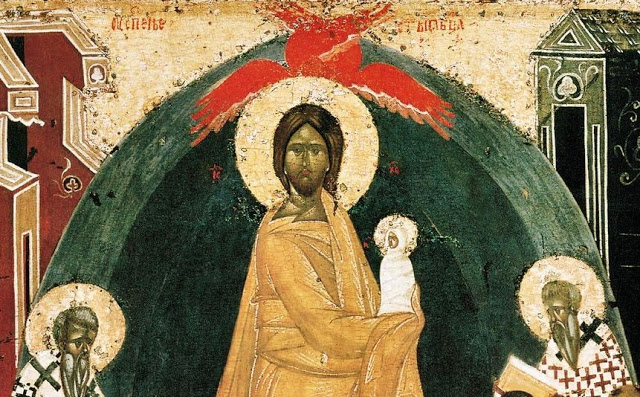
What lesson can we take from the great Dormition of the Mother of God? Indeed, Christ took the soul His Mother in His hands and, as many Orthodox Christians believe and many holy fathers state, thus He revived Her and took to His Kingdom. But what about us? What is coming for us? Ordeals, the meeting with bright and dark angels? No, if only we live a pious life, preserving God’s commandments in our hearts. No, if only we become the salt of the earth, the good leaven of Christ and the sons of light who walk in the true light of Christ. No, if only we preserve untarnished robe of truth, in which we got covered after the Sacrament of Baptism – the robe that proves we all are forgiven by Christ, and that our former royal and priestly image is restored now: “For as many of you as were baptized into Christ have put on Christ” (Galatians 3:27).
No, we will not die and neither we will be given in the enemy’s hands, if only it is possible to say about us that we “washed our robes and made them white in the blood of the Lamb” (Revelation 7:14). If we often partake of Christ’s Supper, with humility partake of the Holy Eucharist, if we bring God the sacrifice of our praise and partake of His Blood and Body, then we will not be trampled by the evil one because Christ will accept us and comfort us all.
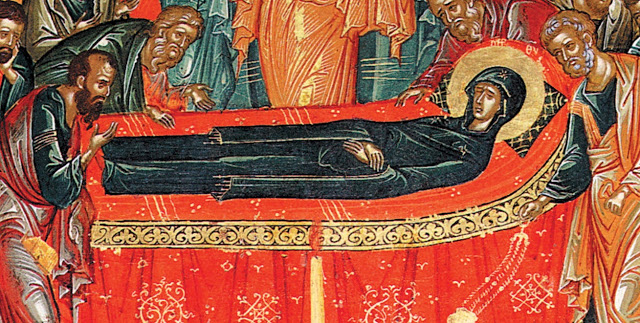
Let us be brave in our Christian life. Let us hope in Living God, asking the Mother of God for Her prayers and help, for She never leaves us without Her protection and never stops praying for Christians. Let us be filled with faith, hope and love, and thus praise the Father, the Son and the Holy Spirit – the Coessential and Inseparable Trinity.

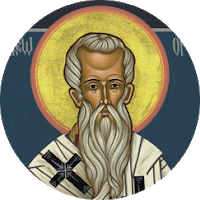
The word of St. Andrew of Crete:
“This is the final goal of the covenants God has made with us; this is the revelation of the hidden depths of God’s incomprehensibility. This is the realization intended before all the ages; this is the crown of God’s oracles, the inexplicable, supremely unknowable will of him who had cared for humanity since before creation began. This is the first-fruit of God’s communion with his creation, of His identification as Maker of all things, with what He has made. This is the concrete, personal pledge of God’s reconciliation with humanity, the surpassing beauty of God’s sculpture, the perfectly-drawn portrait of the divine model. This is the first step to all ascent, to all contemplation; the holy tabernacle of him who made the world; the vessel that received the inexhaustible wisdom of God; the inviolate treasury of life. This is the spring of divine radiance, which can never be drunk dry; the impregnable stronghold, raised so high over all of us in its purity that it can never be conquered by passion. Through this woman [the Theotokos], the pledge of our salvation has been made and kept, in that this marvelous creature has both reach the limits of our lot and has paid the common debt proper to our nature. And if not all the features of her life were the same as ours, that is due simply to her nearness to God.”

Reflections in the Holy Church Tradition:
Kontakion — Tone 2
Neither the tomb, nor death could hold the Theotokos, Who is constant in prayer and our firm hope in her intercessions. For being the Mother of Life, She was translated to life by the One who dwelt in her virginal womb.

